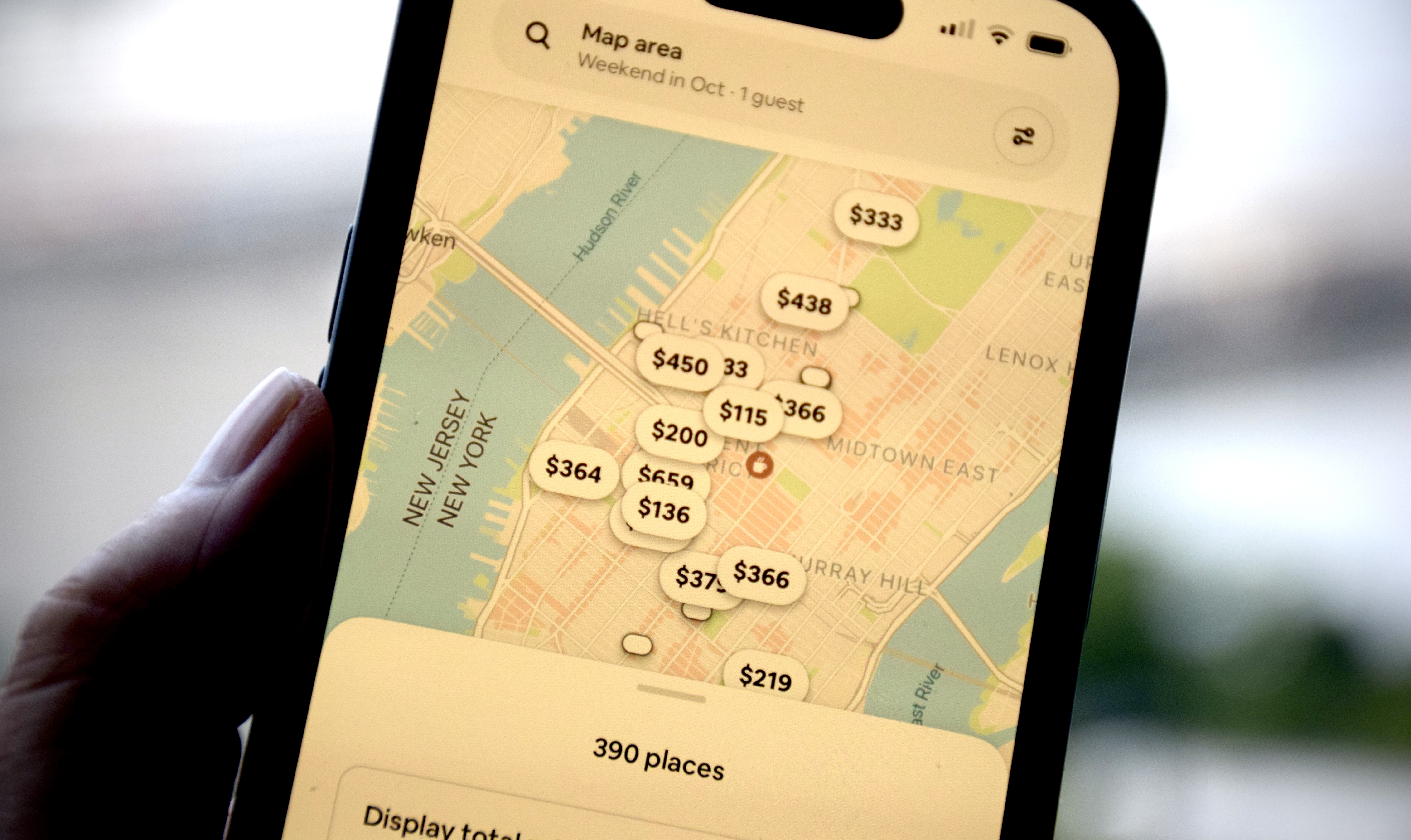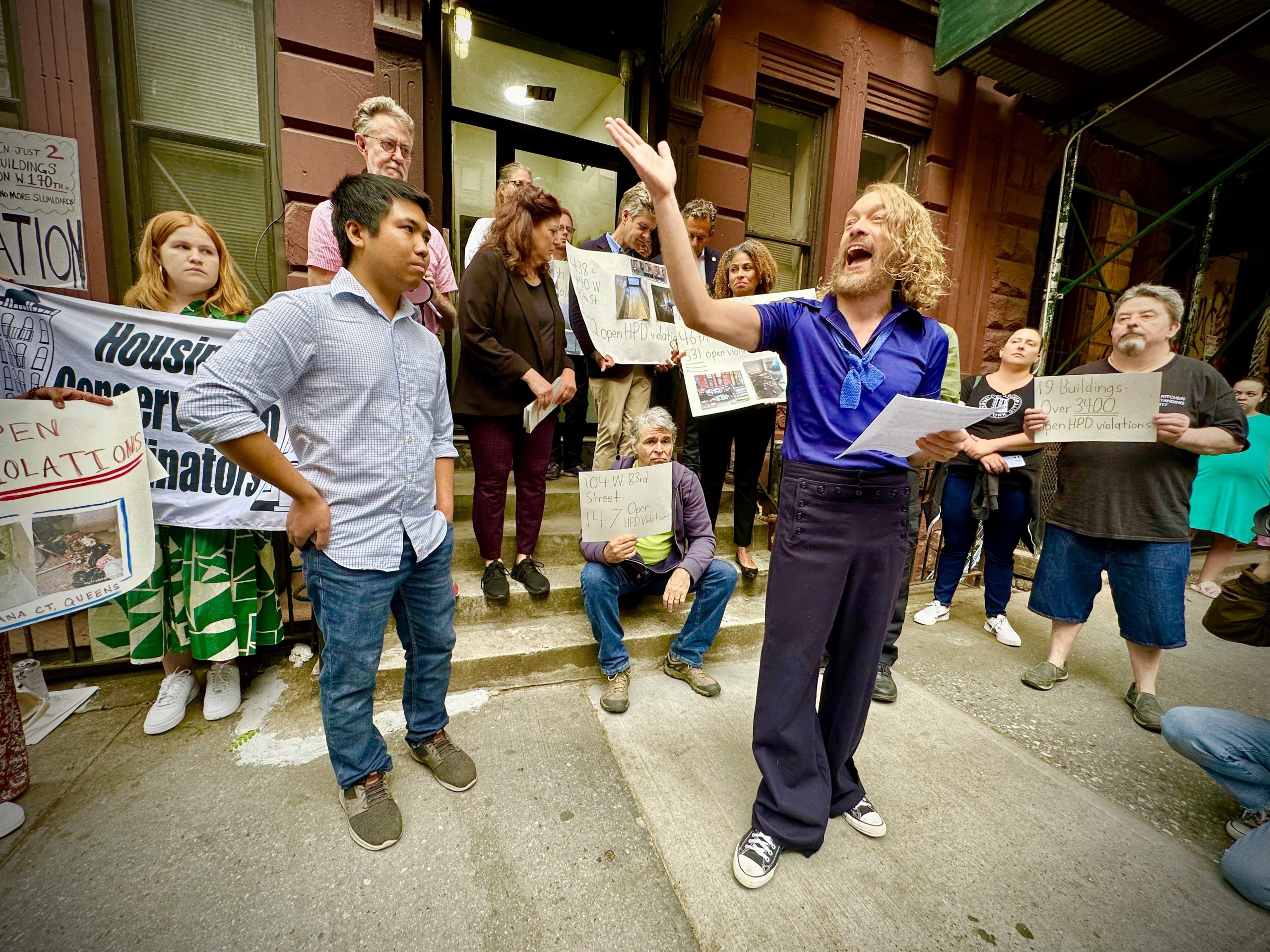A new registration law that goes into effect Tuesday targets major online platforms, but listings are already proliferating elsewhere, challenging the city’s understaffed enforcement agency.

Sam Rabiyah, The City
This article was originally published on Sep 5 5:00am EDT by THE CITY
Enforcement starts Tuesday on a New York City law requiring all hosts who rent out housing for less than 30 days to register before collecting any money for bookings on platforms like Airbnb or VRBO.
Imposing hefty fines on hosts and booking websites that run afoul of registration rules, Local Law 18 aims to end listings for full apartments without hosts present during the stay, which are in effect illegal hotels and already banned by law — a ban that has resisted enforcement until now.
A look at existing Airbnb listings shows the scope of the challenge.
Before Labor Day, over 10,000 “entire apartment/home” listings on Airbnb in New York City offered availability for bookings shorter than the one-month threshold, data from InsideAirbnb shows. These illegal rentals accounted for about one-third of active city listings on Airbnb, the most commonly used short-term rental platform, and had rebounded since the pandemic shut down travel in 2020.

Yet the Office of Special Enforcement, charged with rooting out illegal hotels, issued summonses to owners of just 365 properties in 2021. Even at the peak of enforcement, in 2019, the office issued summonses on fewer than 700 buildings — as nearly 14,000 full apartments were listed for rent for less than 30 days.

OSE’s focus so far has been “responding to submitted complaints,” but the enforcement of Local Law 18 “is designed to address the issue at large scale by requiring the platforms to verify registrations,” said Nora Daniel, chief of staff at the Mayor’s Office of Criminal Justice which oversees OSE.
As of May, Gothamist reported, the office had just 28 positions filled out of 60 budgeted.
“Our biggest concern is getting OSE staffed up,” said Michael McKee, an organizer with the Coalition Against Illegal Hotels who helped draft the new registration law. “The sooner the city fills these roles the better.”
Registration rules are strict. Hosts must provide the Office of Special Enforcement with a lease or other proof that they are the legal occupant of an apartment, and the units must be free of serious housing code violations.
The new law is already having an impact on Airbnb, the biggest player in the short-term rental industry.
As of Aug. 28, the Office of Special Enforcement had approved just 257 short-term rental hosts on the platform, according to Airbnb, which unsuccessfully sued in an attempt to block the registration system. The company informed hosts this summer that any full-unit listing that is not registered will get automatically set to a minimum 30-day stay starting Tuesday.
“The city is sending a clear message to millions of potential visitors who will now have fewer accommodation options when they visit New York City: you are not welcome,” Theo Yedinsky, global policy director for Airbnb, told THE CITY.
What remains to be seen now is how much short-term rental business migrates off the brand-name platforms and onto harder-to-track websites and text chats.
“People will do all sorts of things, including trying to create their own platform,” said McKee.
More Local Airbnb Stories
Freelance Listings
Local Law 18 holds short term rental sites responsible for “transactions” but doesn’t hold them responsible for listings, thanks to federal law that shields online platforms from responsibility for content posted on them.
Many short-term rental providers already have their own websites that advertise listings, process bookings and initiate transactions between renters and owners — including Elevate Vacation Rentals and Stay & Smile. THE CITY also found over a dozen individuals advertising apartment rentals for as little as a few days on Craigslist and Facebook Marketplace.
Small landlords are pushing back, not only against Local Law 18, but also against the city and state laws that prevent them from renting out entire units for less than 30 days.
“We’ve lost autonomy over our homes,” says Jean Brandolini Lamb, who works with a coalition of homeowners who offer short-term rentals named RHOAR. The coalition, which formed a few months ago in response to Local Law 18, believes their members shouldn’t be subject to the same rules as large corporate landlords. They have called for a pause on the registration enforcement for homeowners who live in their one- or two-family houses.
As Airbnb automatically switches illegal listings to the 30-day minimum, some RHOAR members are wary.
“There is a risk associated with 30 day and longer rentals, because in New York City, once someone lives on a property for 30 days they can claim right to the property,” Brandolini Lamb said.
In a memo it’s sending to the City Council Tuesday, the Coalition to End Illegal Hotels criticized the homeowners’ call to change the rules for one- and two-family property owners, calling it “ill-advised” and arguing that an exemption “would make OSE’s job of policing illegal activity significantly harder.”
Some tenant advocates remain skeptical that Local Law 18 will make much of a difference for tenants seeking affordable apartments to rent long term.
Tenant organizer Hui-Cheng Yung said that while the law addresses the “wild party house problem,” a trend towards temporary medium-term rentals for one month or more “will sadly become the biggest intractable housing problem New York City’s ever seen, even more problematic than short-term rentals.”
Last month, THE CITY reported on landlords who are vacating rent-stabilized apartment buildings and turning them into medium-term “coliving” spaces leased by the room, reaping far more rent than traditional apartments.
Advocates from the Coalition Against Illegal Hotels remain optimistic that after more than a decade of efforts to control Airbnb, Local Law 18 will significantly rein in illegal rentals.
“The bottom line is: we feel really good about where we are right now,” McKee told THE CITY. “People power can sometimes beat money.”
THE CITY is an independent, nonprofit news outlet dedicated to hard-hitting reporting that serves the people of New York.



